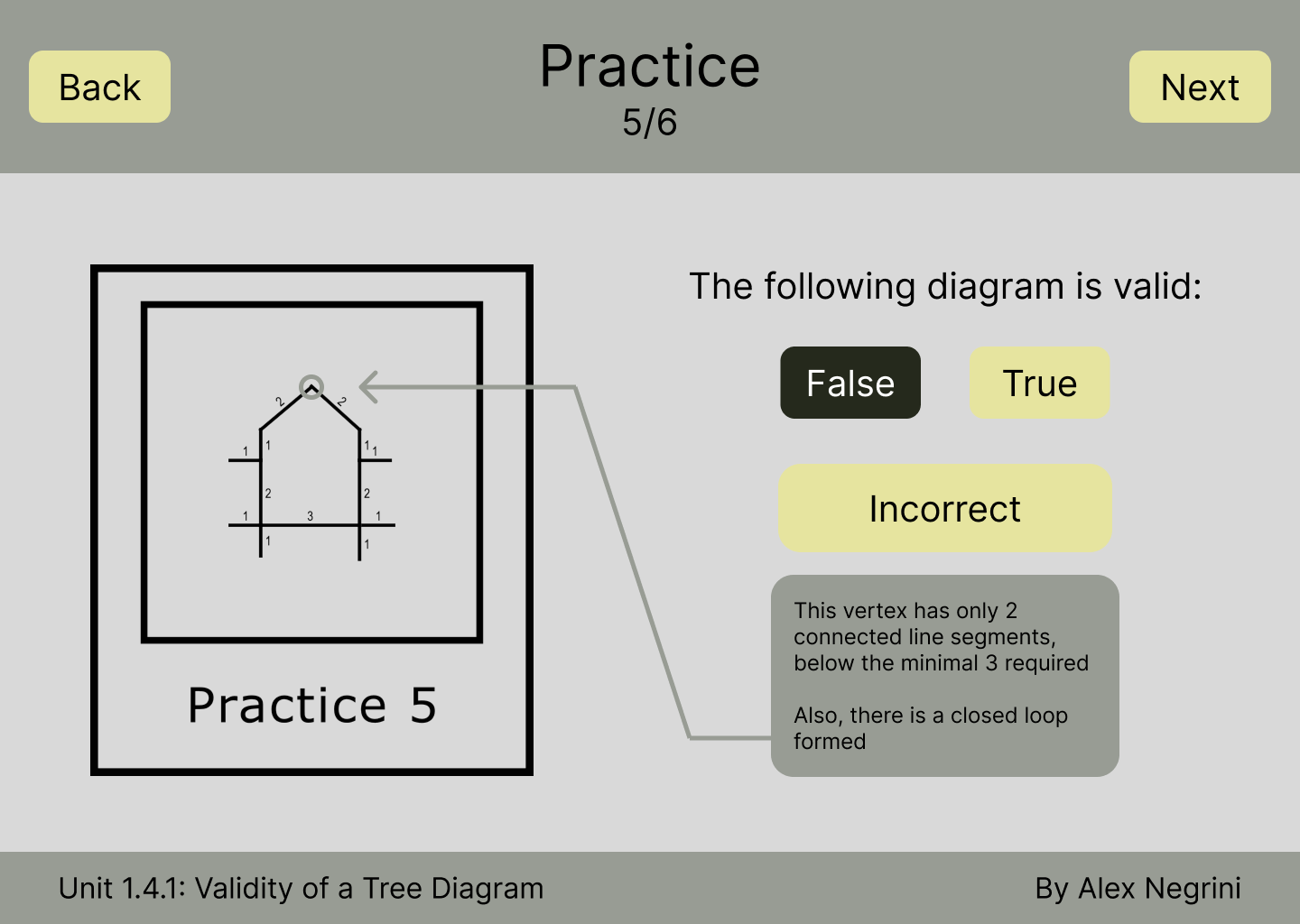Origami Designing Instructional Program

Project Overview
Role
Designer and courseware creator
Duration
4 months
Year
2025
Technologies
Proposal
Convert an academic project intended for individual courseware modules into a unified, cohesive instructional program including five major deliverables.
Solution
The creation of a cohesive instructional courseware program with three completed graphical modules completed in Figma, a text-based module, and a detailed course outline analysis.

Process
The process of the course creation was split into two parts for each academic semester. The first was to create the overall course outline and text-based module, and the second was to use Figma to design three graphical, interactable modules.
Outline
Overall outline and structure of the course
Text Module
Comprehensive text-based course module
Concept Module
Graphical courseware module with dynamic examinations
Procedure Module
Graphical courseware module with video and audio tutorials
Principle Module
Graphical courseware module with a pedagogical agent
Outline
Overall outline and structure of the course
Text Module
Comprehensive text-based course module
Concept Module
Graphical courseware module with dynamic examinations
Procedure Module
Graphical courseware module with video and audio tutorials
Principle Module
Graphical courseware module with a pedagogical agent
Defining Course Structure
Consists of creating the entire outline and structure for the course, as well as a rational and actionable objectives for each simulated course module. This was the first stage in the project.
- •Created a comprehensive course outline with specific units and modules in a hierarchical order
- •Created a rational for course implementation, and detailed objectives for course modules
- •All developed course modules are derived from this outline

Course Outline
The creation of a course outline dictates the structure of the course and the objectives of each course module.
Artifacts
- •Course Outline

Course Outline
The creation of a course outline dictates the structure of the course and the objectives of each course module.
Artifacts
- •Course Outline
Text-Based Course Module
Comprehensive text-based course module, with a focus on the use of text to convey information and text and graphical examples. It is designed to teach valid and invalid tree diagrams, an abstract representation of origami.
- •Creation of a realistic, comprehensive course module
- •Use of formalized structure, involving objectives, examples, practice, and examinations
- •Use of 38 text and graphical examples and diagrams to convey information designed in Inkscape
- •Accurately conveys and teaches a concept, which can be learned through categorization

Diagrams
A sample of the 38 diagrams used for examples, practice, and examinations, all designed in Inkscape. They include abstract representations of origami models.
Artifacts
- •Features
- •Diagrams
Diagrams
A sample of the 38 diagrams used for examples, practice, and examinations, all designed in Inkscape. They include abstract representations of origami models.
Artifacts
- •Features
- •Diagrams

Graphical Concept Course Module
Designed a graphical version of the text-based, concept-oriented course module in Figma, improving on multiple aspects. It is designed to teach valid and invalid tree diagrams, an abstract representation of origami.
- •Figma-designed graphical interface
- •Improved usage of graphics for all sections, including definitions, examples, and practice
- •Programmed a working examination and feedback system with Figma prototyping
- •Accurately conveys and teaches a concept, which can be learned through categorization

Enhanced Features
Displays a graphical user interface for the course module with dynamic examinations.
Artifacts
- •Enhanced Features

Enhanced Features
Displays a graphical user interface for the course module with dynamic examinations.
Artifacts
- •Enhanced Features
Graphical Procedure Course Module
Designed a graphical, procedure-oriented course module in Figma. This modules teaches how to complete a squash fold from origami diagrams.
- •Figma-designed graphical interface
- •Integrations of image, video, and audio tutorials
- •Applies dynamic course navigation and interaction
- •Accurately conveys and teaches a procedure, which can be learned through steps in a process

Features
Displays a graphical user interface for the course module with images, video, and audio.
Artifacts
- •Features
Features
Displays a graphical user interface for the course module with images, video, and audio.
Artifacts
- •Features

Graphical Principle Course Module
Designed a graphical, principle-oriented course module in Figma. This modules teaches how the grid size relates to the total length of a tree diagram, which is an abstraction of an origami model.
- •Figma-designed graphical interface
- •Integrations of a pedagogical agent throughout the entire course
- •Accurately conveys and teaches a principle, which can be learned through the relation between two variables

Features
Displays a graphical user interface for the course module with a pedagogical agent.
Artifacts
- •Features

Features
Displays a graphical user interface for the course module with a pedagogical agent.
Artifacts
- •Features
Let's discuss how I can bring your ideas to life.
